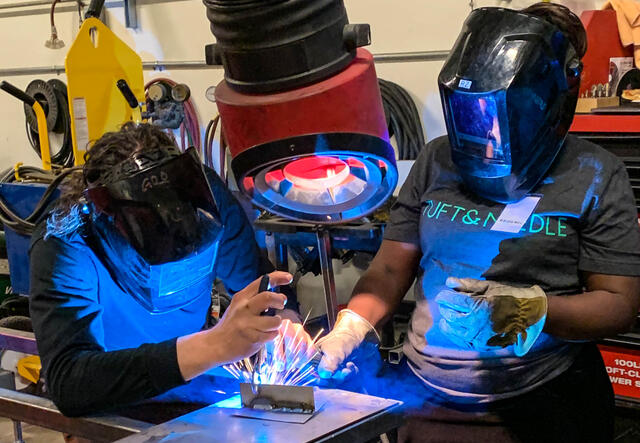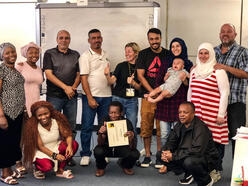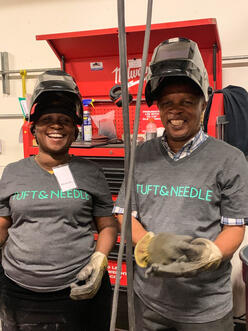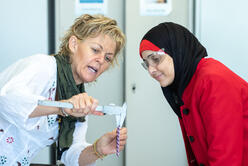
Learning English is critical for immigrants looking to succeed in the United States. Strong English language skills and other vocational skills can open the door to higher-paying jobs and successful careers.

The International Rescue Committee (IRC) in Phoenix is addressing that need with its Manufacturing Works Career Course. The intent is to help immigrants learn vocational language and skills required in technical manufacturing jobs. The curriculum encompasses technical skills, soft job skills, computer literacy, math literacy and financial literacy.
“This is what we need,” said Jamil Shahin at the conclusion of the latest six-week course. Jamil is a refugee from Syria and the president of a Syrian-American community organization. “We need to understand how it works here in America. We need to learn skills in math and computers.”
He was among 16 people who recently completed the course, held twice a week, four hours per session. A total of 37 people have completed the course across four cohorts.
“The class is very, very good,” said Mohannad, a refugee from Syria. His goal from the class was to acquire skills that would open a door to a better job. At the final session, he was honored as the hardest-working class member.

“Working in America”
Class members get the chance to see first-hand what a manufacturing plant looks like. Recently, the group toured a Tuft & Needle facility in Phoenix. Tuft & Needle makes and sells mattresses.
The Tuft & Needle staff set up a production assembly line specifically for class members to give them hands-on experience. The staff addressed critical issues of quality control, teamwork, assembly, and work communication. After the tour, the class met for pizza and talked about the manufacturing process and the skills needed.
Honore, a refugee from the Democratic Republic of the Congo, recognized the importance of the class for preparing students for US workplaces. “We are new people in the USA and there are some differences,” he said. “Learning and knowledge are the basis of everything,” he added. “This is more than orientation. It is knowledge-based. It teaches everything.”
"Teaching by her heart"
At the graduation, class members talked of the benefits of learning math skills, particularly converting from the metric system, which is commonly used in other parts of the world. They were pleased with the English skills they developed. They liked the exercises in dealing with workplace issues. While some had computer skills, they were happy to learn terminology in English and U.S. methods of work.
But the highest praise went to their instructor.

“The most special thing about the class was the teacher, Shana,” said Brishna, a refugee from Afghanistan. “She wasn’t teaching us by lessons, she was teaching by her heart. She was so kind to us, so understanding.”
The class participants share many things including transition to a new country and a new culture. They all are seeking jobs that will provide more options for them and their families.
They also share respect and gratitude for Shana and her work in their behalf.
“The class was amazing,” said Milad, who worked as an interpreter for the U.S. Army in his native Afghanistan. “We came to have a good job in the United States. That’s why we took the class.”

And, they share an appreciation for the opportunities to be in the United States. Milad summed it up. “It is very fortunate for us to study and live in a peaceful country.”
The Manufacturing Works Career Course is made possible by the generous support of the Arconic Foundation.
Story by Dennis Godfrey.